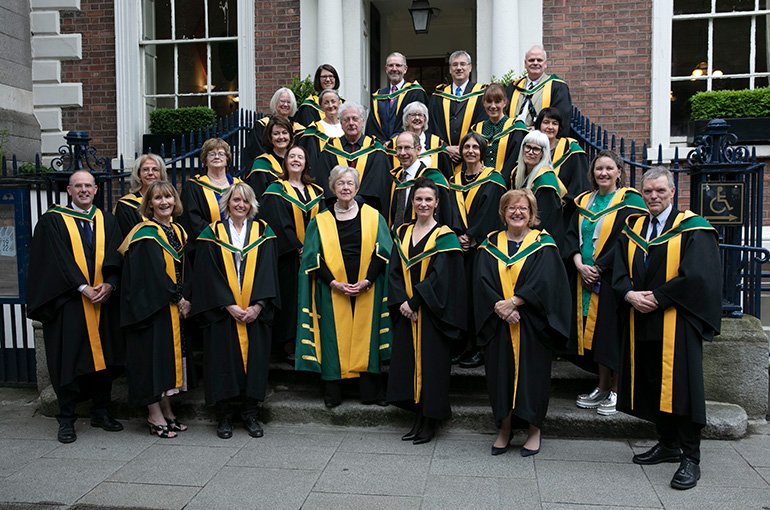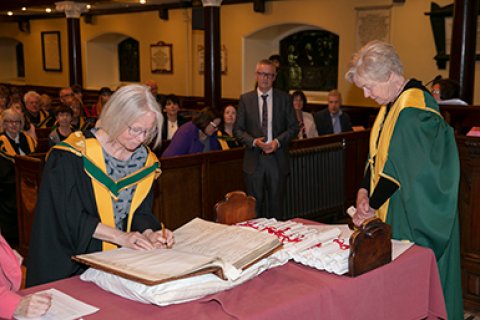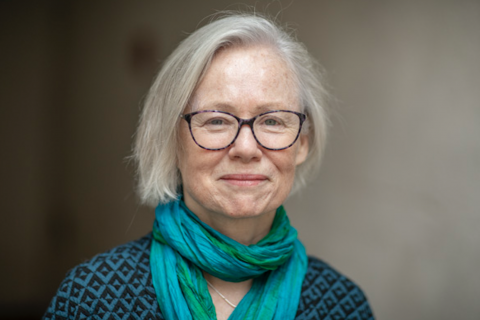Ann Rigney formally admitted to the Royal Irish Academy

Last week, the Royal Irish Academy celebrated Admittance Day, when 24 of the 29 new members were officially admitted to the Academy, who are praised for their exceptional contributions to the sciences, humanities and social sciences, as well to the public. One of those new members is Professor of Comparative Literature Ann Rigney. Membership is by election and considered the highest academic honour in Ireland.
The distinction of Honorary Membership is usually reserved for academics who have made a major international contribution to their disciplines but who are not normally resident in Ireland. Rigney was born and raised in Dublin and she studied at University College Dublin, part of the National University of Ireland. Her research into memory practices and memory politics has also considered (Northern) Ireland.
Admittance Day

Last week, the formal admission took place in Dublin. President of the Royal Irish Academy Mary Canning said: “We are immensely proud of these 29 new Members who we are recognising today for their scholarly achievements, their research and international distinction or for significant contributions to Irish society. As new Members of the Academy, they will contribute to and strengthen our capacity to provide expert advice on Higher Education and Research policy.”
As part of the ceremony, Rigney signed the Roll Book of Members that was begun in 1802 and is still in use. It contains almost all members’ signatures, including all Irish presidents, the poet W.B. Yeats (signed 1924) and physicist Sheila Tinney (1949).
This distinction feels like a great honour and above all as a homecoming.
Ann Rigney
The Royal Irish Academy describes Rigney as “a distinguished literary historian and critic, [who] is particularly known for her groundbreaking books in the field of cultural memory studies.”
Rigney has played a leading role in the development of the field of cultural memory studies. She founded the Utrecht Forum for Memory Studies, is coordinator of the Network in Transnational Memory Studies and associated with Institutions for Open Societies, an interdisciplinary field of research focused on the development and construction of healthy open societies anywhere in the world.

Her research explores the intersections between narrative, collective identity, and contestations of the past across a wide range of media and cultural practices.
Rigney currently leads the large Remembering Activism: The Cultural Memory of Protest in Europe (ReACT) project, on the afterlife of protest in cultural memory: how are mass demonstrations remembered when they are no longer news?
For this project, Rigney has received an ERC Advanced Grant from the European Research Council (2019-2023). She is also a member of the Royal Netherlands Academy of Arts and Sciences (Koninklijke Nederlandse Akademie van Wetenschappen, KNAW) and of the Academia Europea.
Royal Irish Academy
The Royal Irish Academy, founded in 1785, recognises outstanding achievement in research and scholarship by persons with a connection to Ireland. The Academy promotes awareness of how science and the humanities enrich our lives and benefit society.
There are currently over six hundred members, of whom nearly ninety are honorary members. Candidates for honorary membership are proposed and elected by Academy members. The KNAW can be considered the Dutch equivalent of the Academy.

